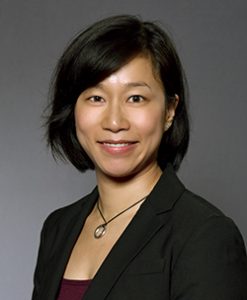Profile of the DRRC
Interview with Cynthia Wang, Executive Director of DRRC


Cynthia Wang, Executive Director of the DRRC
Can you tell us a bit about DRRC? (My assumption is that most IACM folks will know DRRC…but maybe just a bit about the history of DRRC and what’s new and on the horizon?).
The Dispute Resolution Research Center (DRRC) is a Kellogg School of Management research center at Northwestern University. It was founded in the spring of 1986 by Northwestern University faculty in the Schools of Law, Management, and Arts and Sciences, including Jeanne Brett, who led the DRRC as the executive director for several decades. The center is an internationally-recognized center for research on conflict, dispute resolution and negotiation. We provide education and teaching materials in topics related to managing conflict and promoting collaboration, including topics such as negotiation, intergroup conflict, team dynamics, dispute resolution, and intergroup bias.
We have a lot of exciting initiatives in the works this year. In terms of research-based initiatives.
- We are actively involved with various communities. We are excited to continue to support research activities within the IACM community (which I will highlight below). We also continue to support the Conflict Management Division at Academy of Management for their conference and award activities.
- In the next several years we will host conferences on topics such as ethnic conflict, relational and intergroup conflict, social movements, and ethical breaches. This year, we are hosting an Intergroup Conflict and Cooperation Conference, which aims to highlight cutting-edge research examining the factors that influence the emergence and escalation of conflict between individuals from different social groups. Strategies and contexts that can reduce conflict and increase collaboration. We are featuring research from experts in the areas of anthropology, sociology, political science, psychology, and management and will explore topics of intergroup relations, immigration, ethnic and racial conflict, and political violence. This seeks to stimulate research discussions geared towards formulating research that can help us solve some of the biggest conflict issues facing our world.
- We continue to have a wonderful post-doctoral fellowship program. Our post-doctoral program is the cornerstone of our program and a central goal I have is to make sure that the program continues to be successful. The IACM community has definitely interacted with many our post-docs at the IACM conferences! For example, fun fact: did you know that Robin Pinkley was the first ever DRRC postdoc? Our two 2nd year post-doctoral fellows will be leaving us for greener pastures (Marlon Mooijman will be heading to Rice University and Esther Sackett will be heading to Santa Clara University for tenure-track positions). We are excited that in addition to our current post-doc Jillian Jordan, Christopher To (NYU, Management) and Dylan Wiwad (Simon Fraser, Psychology) will be joining us Fall 2019.
In terms of teaching-based initiatives, we provide a number of negotiation, decision making, and teamwork role-playing exercises that continue to be popular and have introduced several new ones in the past couple of months (see DRRCexercises.com). Check out OmniChannel, Lovely Braids, Zephyr, or Browning Brothers Search, for examples of some of our new offerings.
We have also started to compliment the negotiation role-playing exercises with negotiation cases so instructors can diversify their offerings by teaching using a case-based method. Some cases we have included are Hemisphere Development LLC: Betting on a Brownfield, Kirat Housing Development Society, and Motorola’s Droid 2. Finally, we are in the process of developing some online negotiation formats (set to be released during the summer, stay tuned).
What’s your role at DRRC?
I’m the Executive Director of the Dispute Resolution Research Center (DRRC). My role is to lead the DRRC’s research-related initiatives, such as conferences, student research support, and post-doctoral fellowships and the DRRC’s teaching-related initiatives, such as making sure our teaching offerings remain fresh and current.
My understanding is that DRRC has sponsored awards at IACM for several years. Could you tell us about how you’ve partnered with IACM in the past and any upcoming sponsorships for the 2019 conference? (THANK YOU from IACM!)
YOU ARE WELCOME! IACM and DRRC have always had a close relationship and we would like that will continue. The DRRC has always supported IACM in the past with conference sponsorships and funding for student and best paper awards. In Dublin, we plan to provide $500 to the winner of the Best Dissertation Award (see https://form.jotform.com/83304630823148). In addition, we are sponsoring the Connect & Collaborate Session and Reception at IACM. This will be a pre-conference opportunity to connect with peers and potential research collaborators, discuss career milestones and challenges, and connect with prominent figures in the field.
DRRC is known for it’s negotiation exercises and teaching materials. Can faculty outside of DRRC submit exercises? What is the process? Any tips or suggestions for writing a successful exercise?
Yes! Any faculty can submit. Many faculty work graduate students or post-doctoral students to come up with great exercises and there is a royalty share agreement we have with authors. The instructions of how to submit are here:
Our favorite submissions are those that 1) fulfill a need for our customers (e.g., we would love some more team decision-making exercises, multi-party negotiation exercises, etc.), 2) are clear and are free of typos and grammatical errors, 3) have a ‘modern’ twist (e.g., isn’t set in the 1970s), 4) are accompanied by great teaching notes that can help a novice instructor teach the case, and 4) has been tested out, preferably in a classroom.
Anything else?
Thanks for asking me to do this and highlighting the DRRC. I still remember my first IACM in Pittsburgh (2002) so it is great to be in a position in which I can continue to be part of and contribute to the IACM community.